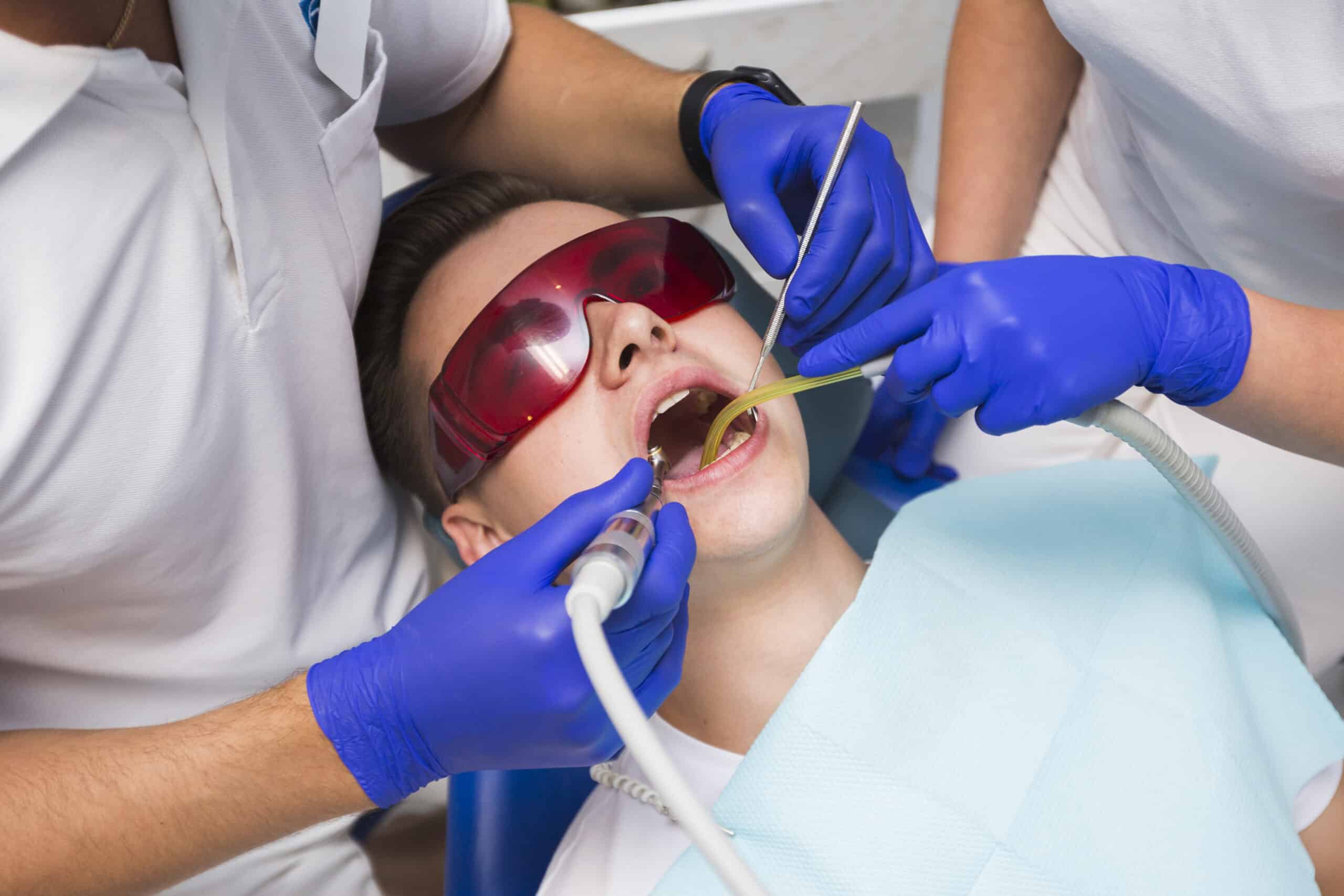Say Goodbye to Dental Anxiety: A Closer Look At Sedation Dentistry
By :
Affordable Dentist | September 18, 2023
Do you feel a knot in your stomach at the mere thought of visiting the dentist? You're not alone. Dental anxiety is a common issue that affects millions of people worldwide. The fear of pain, needles, or the dental chair can challenge even a routine dental check-up. But what if there was a way to say goodbye to dental anxiety for good? Enter sedation dentistry, a game-changer in the world of oral healthcare. This comprehensive guide will examine how sedation dentistry works, its benefits, and why it might be the solution you've been searching for. Say goodbye to dental anxiety and hello to a more relaxed and comfortable dental experience.
What Exactly Is Dental Anxiety?
Dental anxiety, also known as dental phobia, is a common psychological condition characterized by a strong fear, apprehension, or anxiety related to visiting the dentist or undergoing dental procedures. People with dental anxiety often experience intense feelings of unease, nervousness, or even panic when faced with the prospect of dental care. This anxiety can be triggered by various aspects of the dental experience, including the sound of dental equipment, the sight of needles or instruments, the fear of pain, or a previous traumatic dental experience.
Signs That You Have Dental Anxiety
Symptoms of dental anxiety can vary in intensity and may include:
- Fear of dental appointments: People with dental anxiety may avoid going to the dentist altogether, leading to deteriorating oral health.
- Nervousness and restlessness: Individuals may feel anxious and on edge in the waiting room or dental chair.
- Increased heart rate: Dental anxiety can lead to a racing heart, sweating, and palpitations.
- Muscle tension: Some people may experience muscle tension, particularly in the neck, shoulders, or jaw.
- Difficulty breathing: Shortness of breath or rapid breathing can occur due to anxiety.
- Nausea or stomach discomfort: Upset stomach or nausea may occur before or during dental appointments.
- Crying or emotional distress: Extreme cases of dental anxiety can lead to emotional outbursts or tears.
The Power Of Sedation Dentistry
For many individuals, visiting the dentist triggers negative emotions and physical reactions. Sweaty palms, racing hearts, and sleepless nights are just a few dental anxiety symptoms. The fear of pain or discomfort during dental procedures can be overwhelming, causing many to avoid necessary treatments altogether. This avoidance can lead to more significant dental issues, creating a vicious cycle of fear and neglect.
Sedation dentistry, however, offers a lifeline to those grappling with dental anxiety. This innovative approach involves using medication to induce a state of relaxation and calmness, allowing patients to receive the care they need without fear or distress. It's like pressing a reset button on your dental anxiety, making the dental chair a place of comfort rather than fear.
Types Of Sedation Dentistry
There are various levels of sedation dentistry, ranging from mild relaxation to deep sedation, depending on your specific needs and the complexity of the procedure. Here are the primary types:
- Nitrous Oxide (Laughing Gas): This is the mildest form of sedation and is often used for patients with mild anxiety. It induces a sense of euphoria and relaxation and wears off quickly after the procedure.
- Oral Sedation: Administered as a pill, oral sedation is stronger than nitrous oxide. It can make you feel drowsy, but you'll still be conscious and able to respond to your dentist's instructions.
- Intravenous (IV) Sedation: IV sedation is ideal for those with moderate to severe dental anxiety. It is administered through a vein, providing a deeper level of sedation. You'll remain conscious but may not remember much of the procedure.
- General Anesthesia is the deepest form of sedation, often reserved for complex surgical procedures or patients with extreme anxiety. Under general anesthesia, you'll be completely unconscious.
Benefits Of Sedation Dentistry
The benefits of sedation dentistry are far-reaching, not only for patients but also for dental practitioners. Here's why it's worth considering:
Anxiety Relief: The most obvious advantage is the relief from dental anxiety. Sedation allows patients to undergo treatments without the emotional distress often accompanying dental visits.
Pain-Free Procedures: Sedation can minimize or eliminate the discomfort associated with dental procedures, ensuring a pain-free experience.
Time Efficiency: With sedation, dentists can often perform multiple procedures in a single appointment, reducing the need for multiple visits.
Improved Oral Health: Sedation dentistry encourages patients to seek timely dental care, preventing minor issues from becoming major problems.
No Memory of the Procedure: For those with severe dental anxiety, the amnesic effect of some sedation methods means they won't remember the details of the treatment.
Dental anxiety should never hinder achieving and maintaining excellent oral health. Sedation dentistry is a groundbreaking solution that can help you overcome your fears and transform your dental experience into a comfortable and stress-free one. Whether you opt for nitrous oxide to remove your anxiety or require deep sedation for a complex procedure, sedation dentistry offers a tailored approach to your needs. Don't let fear stand between you and a healthy, beautiful smile. Say goodbye to dental anxiety and say hello to a brighter, more confident you, ready to face the dentist chair without hesitation. It's time to relax and smile.


